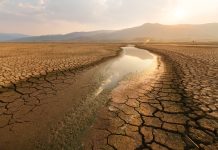Climate change poses a growing challenge to human health and well-being. Extreme events such as heavy rainfall and heatwaves can strain health systems and harm population health
In the latest webinar by Open Access Government, hosted by Editor Lorna Rothery, Professor Dr Daniela Jacob, Director of the Climate Service Centre, Germany, Professor Kristie Ebi, Professor of Environmental and Occupational Health Sciences at the University of Washington’s Department of Global Health, and Professor Virginia Murray, Head of Global Disaster Risk Reduction at the UK Health Security Agency, discuss the interconnection between the climate crisis and health.
Key questions:
- What is the current state of knowledge in climate science?
- What are the resulting requirements for health and environmental policies, key healthcare institutions, and stakeholders in preventive and treating medicine?
- Which climate change impacts, current and expected in the medium term, need to be considered in terms of ‘human health’ together with the resulting adaptation interventions that support achieving climate resilience?
- Why is it very important to include precautionary approaches in the corresponding adaptation strategies?
- What responsibilities should be assigned to and assumed by the involved institutions to promote adaptation and resilience in a targeted manner?
These experts explored the pressing challenges posed by climate change on health systems and the roles of various actors in fostering climate resilience. As extreme weather events become more frequent and intense, their impact on health systems worldwide prompts the urgent need for adaptation and resilience strategies.
Climate change is set to increasingly affect many aspects of our lives
Pathogens that previously were only common in warmer climate zones are spreading into previously cooler regions. In Australia, temperatures have reached over 40 degrees in recent days, which is unexpected for this time of year.
Opening the session with a presentation, Professor Dr Daniela Jacob discusses the influence of climate change on extreme weather events such as heatwaves, heavy precipitation, and hurricanes in Europe, Canada, South Asia and the rest of the world.
Climate services, which provide weather and climate information, play a crucial role in preparing societies for future climatic changes. By integrating climate data with local knowledge, these services can guide adaptation efforts across various sectors, including health.
The collaboration between climate scientists and health professionals is essential to ensure that climate information is relevant and actionable, ultimately enhancing the resilience of health systems.
According to estimates, 50-60,000 Europeans die annually from the heat
Professor Virginia Murray highlights the importance of international frameworks like the Sendai Framework for Disaster Risk Reduction, which were developed to address these issues comprehensively.
The framework focuses on reducing morbidity, mortality, and economic loss while increasing knowledge and early warning systems. Such international agreements and platforms foster collaboration among UN member states and provide a structured approach to managing disaster risks.
However, the translation of these high-level frameworks into actionable plans at the local level remains a significant challenge, highlighting the need for effective communication and implementation strategies.
85% of health risks of a changing climate are in children
Professor Kristie Ebi shed light on the health implications of climate change, particularly the inequities it exacerbates. Vulnerable populations, especially in low and middle-income countries, bear the brunt of climate-sensitive health outcomes such as heat-related illnesses, mental health issues due to flooding, and respiratory problems from wildfires.
Despite the wealth of scientific understanding about these risks, there is a pressing need for adaptation strategies tailored to local contexts. This includes developing early warning systems and promoting community-based interventions to protect the most vulnerable groups.
The webinar underscores the significance of partnerships and cross-country learning for effective climate adaptation. The session concludes with a call for action-oriented solutions and the sharing of best practices across regions.










